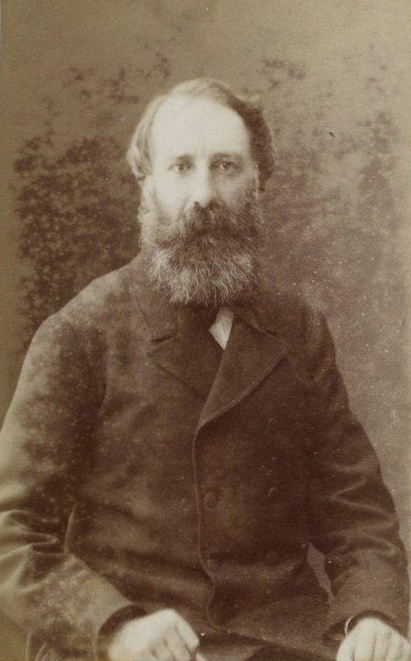 |
| George Picot Not a professor |
And I’ve transcribed the piece below exactly. I check these things; I don’t want to subject my readers to typos, so I generally fix up any that I find. They didn’t intend a typo. I’m making an exception this time.
The Kansas City Journal in tis article in its edition of July 30, 1899, consistently misspells “Esperanto.” The language referred in the article is clearly Esperanto, but they published it as “Esparanto. Oops. Consistently. And enclosed in quotation marks. Surprisingly, they got ”Zamenhof" right.
Perhaps the unfamiliar word to American ears sounded as if someone were saying "Esparanto." Certainly, I've heard many people pronounce it with a schwa, making it unclear just what vowel is hiding in there. So perhaps I shouldn't take the Kansas City Journal too much to task.
THE WORLD LANGUAGEFrom what Wikipedia says about Georges Picot, he was a lawyer and historian, but not a professor. he was a member of the Academy of Moral and Political Sciences. Not a professor.
Matter of a Universal Tongue Will Be Discussed at the Paris Exposition
Paris Correspondence New York Journal
Threats of revolution and civil war do not interfere with pushing the preparations for the exposition of 1900. In addition to the ninety world congresses decided upon, preparations are begin made for what will be the most interesting and far reaching of all—namely: the congress for a consideration of a universal language called “Esparanto.” Hopes are entertained by those who have studied it that it will be taken up by all nations. Its grey recommendation is the facility with which it can be learned.
The grammar of “Esparanto,” by Dr. L. Zamenhof, the Russian savant, is marvelously easy, and can be learned in an hour. Tolstoi and other recommend the new language upon humanitarian grounds, because it afford such a singularly easy way of intercommunication between countries having different tongues. There is a newspaper published in the language at Epernay. The editor was a lifelong student of Volapuk, but gave it up when the claims of “Esparanto” were brought to his notice.
Its chief promoter here is Professor George Picot, of the Institute of Paris. M. Picot has converted his fellow academicians to his way of thinking. Regarding “Esparanto,” this learned academician said:
“I favor ‘Esparanto’ as a universal language because of the ease with which it can be learned. We get at the root-word, which is easily understood. We retain old Roman characters. Volapuk is a failure because it is too difficult. The new language has no complex rules. It will be of priceless value as a commercial language, and can be mastered in a few days.”
Note to the Kansas City Journal: It's Esperanto, not Esparanto.
And, of course, there was no decision at the conferences surrounding the 1900 World's Fair to adopt Esperanto as the international language of diplomacy and science.
You can follow my blog on Twitter (@impofthediverse) or on Facebook. If you like this post, share it with your friends. If you have a comment just for me, e-mail me at impofthediverse@gmail.com.
This blog runs solely on ego! Follow this blog! Comment on this post! Let me know that you want to read more of it!
No comments:
Post a Comment